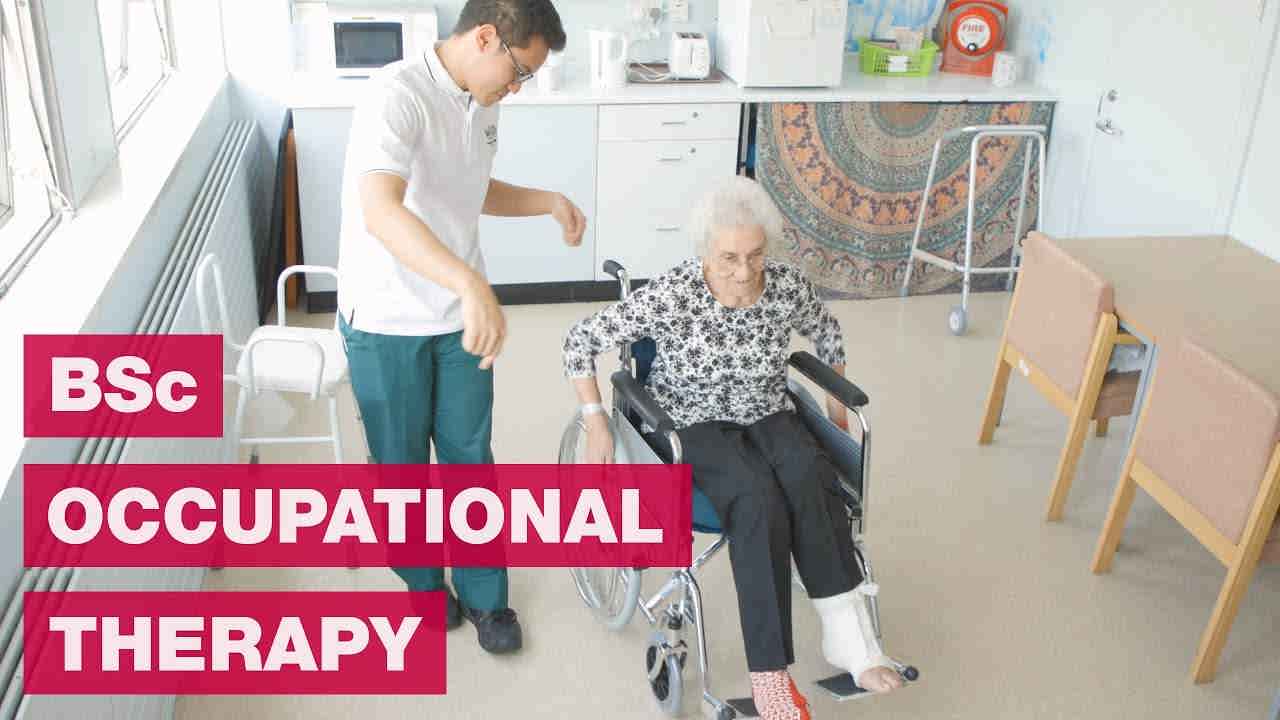OVERVIEW
Occupational Therapy is concerned with promoting health and well being through engagement in occupation. It draws from the fields of medicine, psychology, sociology, anthropology, and many other disciplines in developing its body of knowledge. In Occupational Therapy, “occupation” is viewed broadly to include everything people do to “occupy” themselves, caring for self and others.
Since an injury, illness, and/or environmental barrier limits a persons’ participation in everyday activities (occupations), occupational therapists are called upon to address the barrier and/or help persons regain or develop their skills and abilities so they can participate in their everyday activities.
Occupational therapist work with individuals who suffer from a mentally, physically, developmentally, and/ or emotionally disabling condition. The therapists use treatments that develop, recover, or maintain clients’ activities of daily living. This helps clients not only to improve their basic motor functions and reasoning abilities, but also to compensate for permanent loss of function.
AIMS AND OBJECTIVES
• Equip students with the specific knowledge base and skills that are required for competent practice of occupational therapy at the beginning level;
• Develop students’ understanding of the holistic nature of a person’s health status and its implications on the delivery of health care service with emphasis on rehabilitation;
• Develop students’ analytical thinking, problem solving, interpersonal and communication skills;
• Develop students’ ability to integrate knowledge, skills and attitudes to practice competently in occupational therapy;
• Develop students’ skills in selfdirected learning and positive attitudes towards continuing professional and personal development.
• Synthesize current biological, behavioural and clinical sciences for occupational therapy practice with due reference to the holistic approach to health care issues;
• Plan, implement and evaluate programmes of therapy which help patients/ clients acquire adaptive skills, social effectiveness and physical abilities essential for participation in one’s own life roles;
• Contribute to the planning, organising, staffing, leading and assuring the quality of service of an occupational therapy unit;
• Apply knowledge and interpersonal skills learned to work co-operatively as a member of the health care team which aims at reintegrating the disabled back to their families and into the community.
INDUSTRY/GLOBAL TRENDS
Globally, the demand for occupational therapists is on the rise as a result of the increasing number of individuals with disabilities or limited function who require therapy services. Whereas older persons have an increased incidence of heart attack and stroke, which spur demand for therapeutic services; children with disabilities have to be assisted by therapists to undertake special education programmes.
Besides, hospitals continue to employ large number of occupational therapists to address both critical and acute needs of patients through extensive therapy. Emerging trends in occupational therapy include training for the elderly, driver rehabilitation and ergonomic consulting.
ASSESSMENT
Students will be assessed on the basis of completed assignments, examinations, workplace learning and projects or other methods as outlined in specific subject outlines.
ENTRY REQUIREMENTS
See General Admission Requirements and Procedures pages.
DURATION
The minimum period for completing the BSc. Occupational Therapy programme is 8 semesters and the maximum period is 12 semesters.
CAREER PROSPECTS
The Bachelor of Occupational Therapy prepares students for work in hospitals and community healthcare settings, rehabilitation units, human resource management, government policy units, private practice and counseling services








